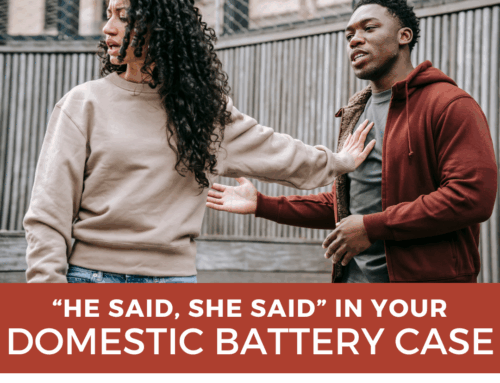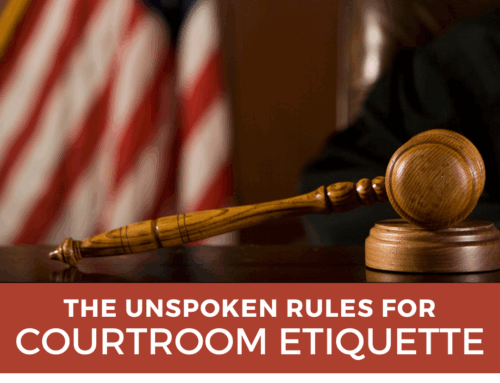Domestic battery cases often involve complicated personal histories, emotional moments, and events that aren’t as clear-cut as they may seem. Sometimes, both people involved in the incident agree that what happened was the result of miscommunication or misinterpretation rather than intentional harm.
This concept—what many would call a “mutual misunderstanding”—may seem like a reasonable explanation. But is it a recognized legal defense? The short answer: not exactly. While Illinois law doesn’t formally list “mutual misunderstanding” as a defense, the facts behind such a situation can influence how a case is charged, prosecuted, and resolved.
An attorney can help ensure that your version of events is fully presented in a way that supports the best possible outcome, though no lawyer can promise exactly how a court will interpret it.
Why Misunderstandings Happen in Domestic Cases
There are many ways a domestic dispute can be fueled by misunderstanding:
-
Misreading tone or intent – A physical gesture or comment may be seen as threatening when it wasn’t meant that way.
-
Escalation without intent – A tense discussion can suddenly become heated without either party planning it.
-
Conflicting memories – Stress, alcohol, or high emotion can distort recollection.
-
Cultural or personal differences – Actions considered normal in one context may be perceived as aggressive in another.
When these factors are in play, the incident may be less about deliberate harm and more about an emotional moment spiraling out of control.
How Courts View “Mutual Misunderstanding”
Courts don’t generally accept misunderstanding alone as a defense to a domestic battery charge. However, the circumstances can be relevant to:
-
Establishing lack of intent – If there’s no proof of intentional harm, it may affect the ability to convict.
-
Challenging credibility – If both parties recall events differently, it can raise doubts about the prosecution’s case.
-
Negotiating outcomes – A prosecutor may be more open to reduced charges or alternative resolutions if the situation appears mutual.
It’s important to note that these possibilities depend entirely on the specifics of the case—and the legal strategies available.
The Risks of Relying Solely on Misunderstanding
While it may seem like explaining “it was all a misunderstanding” should be enough, there are risks to leaning on this alone:
-
The prosecution may argue that harm still occurred, regardless of intent.
-
Physical evidence or witness statements could contradict your account.
-
The accuser could later change their statement, shifting blame more heavily onto you.
These are reasons why your explanation needs to be supported by concrete evidence and legal analysis, not just your own account.
Evidence That Can Support a Misunderstanding Narrative
Certain types of evidence can help illustrate that an incident was the product of confusion rather than aggression:
-
Text or message history showing cooperative communication before and after the incident
-
Witness accounts describing mutual escalation rather than one-sided aggression
-
Lack of injuries consistent with a violent encounter
-
Video or audio recordings capturing the interaction in full context
Even with such evidence, the court’s interpretation can vary—making an attorney’s guidance critical in presenting it effectively.
Illinois Law and Intent
In Illinois, domestic battery generally requires proof that the accused intentionally or knowingly caused bodily harm or made physical contact of an insulting or provoking nature. If your attorney can show the contact was accidental or misinterpreted, it could weaken the prosecution’s case. You can read the full statute in the Illinois Compiled Statutes on domestic battery.
While misunderstanding alone won’t erase the charge, it can factor into showing there was no criminal intent.
How an Attorney Can Help
No attorney can guarantee that presenting a mutual misunderstanding will lead to dismissal or acquittal. However, a lawyer can:
-
Gather and organize evidence that supports the lack of intent
-
Identify inconsistencies in the accuser’s statements
-
Negotiate for reduced charges or alternative resolutions when appropriate
-
Present the situation in a way that humanizes you and reflects the complexity of the events
By approaching the defense strategically, your lawyer can work to ensure the court sees more than just a single version of events.
Mutual misunderstanding isn’t a formal legal defense, but it can play an important role in shaping the outcome of a domestic battery case. With the right legal guidance, you can give the court a fuller picture of what really happened—while understanding that no outcome is guaranteed.
Do You Need to Talk to an Attorney About Domestic Battery Defense?
If you need to talk to a domestic battery defense attorney in Illinois, we’re here to help. Call us at 847-920-4540 now – we’ll be happy to give you a free consultation and talk to you about your options.







Leave A Comment
You must be logged in to post a comment.